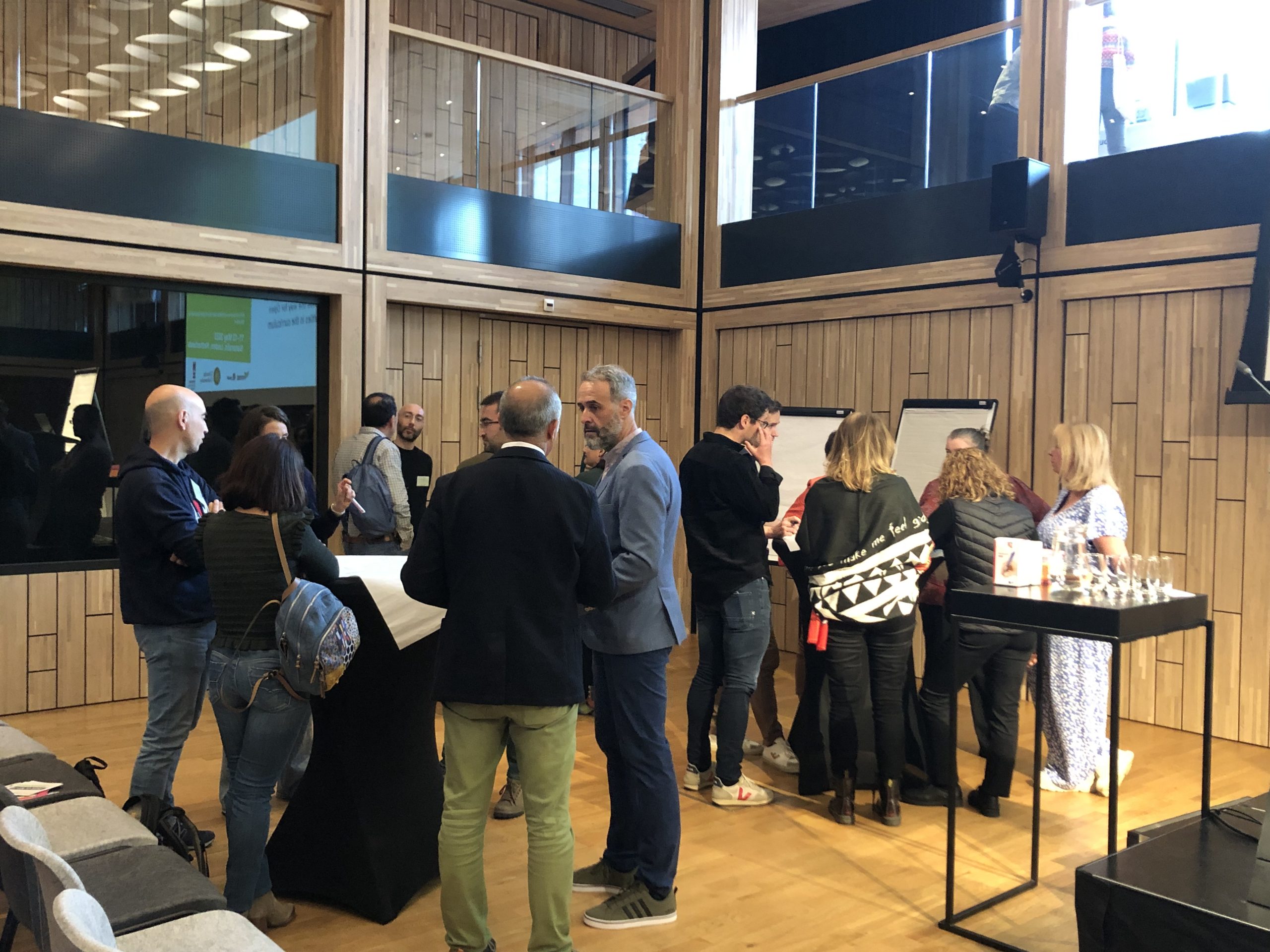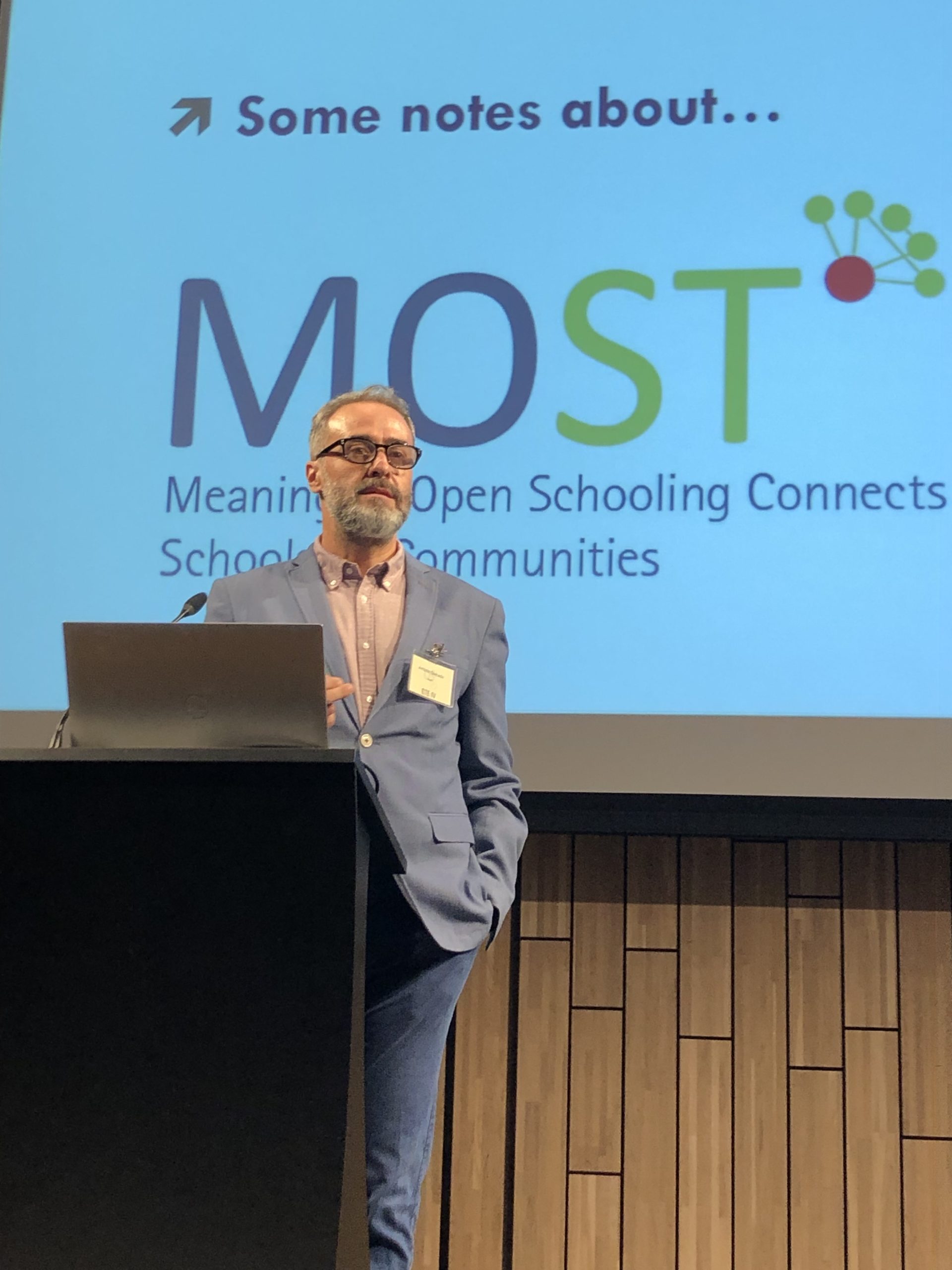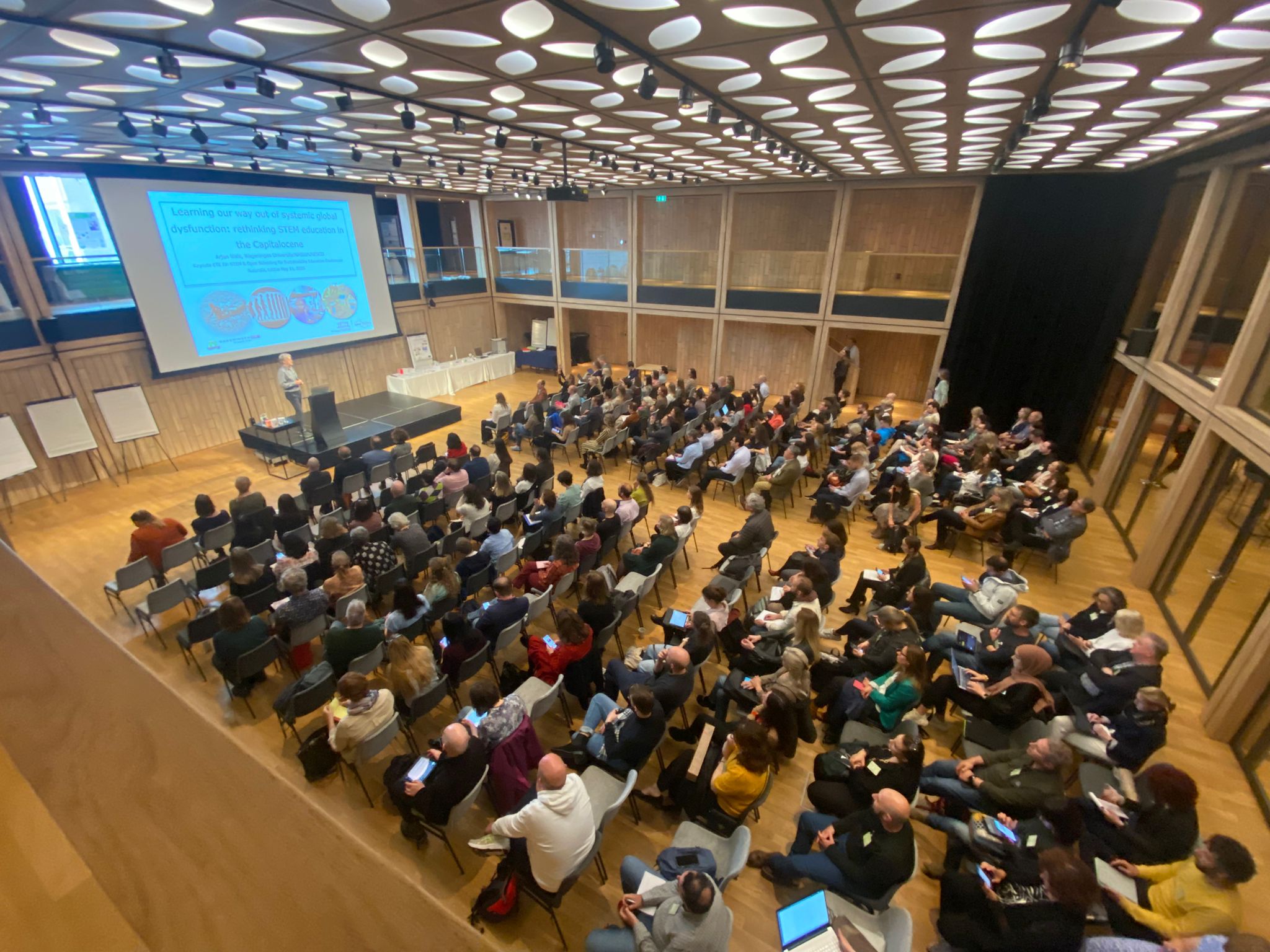Ways to support schools on their path to institutional change
by Sabine Mickler, University of Education Freiburg, and Gultekin Cakmakci, Hacettepe University
In order to discuss with different stakeholders the importance of integrating Open Schooling activities into the curriculum and how to institutionalise this promising teaching and learning method, a policy seminar was held during the European MOST conference as part of Educating the Educators IV in Leiden (NL) on 11 May 2023. The seminar had two parts: The first part included presentations of Giuseppe Mossuti, European Schoolnet; Antonio Quesada, MOST project, University of Jaén, and Tobias Feitkenhauer, Initiative Schule im Aufbruch. The second part included a World Café, in which different stakeholders – policy-makers, teachers, representatives from the education sector and members of the European Open Schooling network – discussed what teachers need to integrate Open Schooling activities into their lessons and how actors in the education sector can contribute to integrate these activities in the curriculum. The main aims of this policy seminar were
- Illuminate the importance of opening up school education and present examples of best practices.
- Discuss and reflect how this promising approach can be integrated in the day-to-day teaching
- Discuss what schools and their teachers need to start institutional change and transform into an open school.


Introduction speech by Giuseppe Mossuti, European Schoolnet

Antonio Quesada, University of Jaén (ES), speaks about empirical findings from the MOST project
To set the mood for the theme, a video with contributions from MOST partner countries illustrated the impact MOST Open Schooling projects have had on participants through quotes from teachers, students and out-of-school participants. In his introduction speech, Giuseppe Mossuti, European Schoolnet, discussed STEM education challenges and highlighted that Open Schooling offers solutions to these challenges in following perspectives:
- It allows communities to invest in the next generation
- It helps teachers to shift from content-based teaching towards process-based learning
- It fosters collaboration between schools and local communities
- It gives students a sense of agency
Subsequently, Antonio Quesada, MOST project, University of Jaén, reported empirical evidence on benefits of MOST Open Schooling projects to justify why it is so important and useful to integrate Open Schooling approaches in the curriculum. The preliminary results are promising and these evidence-informed outcomes and suggestions will further inform key stakeholders.
Tobias Feitkenhauer, Initiative Schule im Aufbruch (“schools on the move”) stresses that there is an urgent need to introduce new learning formats that provide students with the necessary skills to take responsibility in a rapidly changing world. He reports on the learning format “FREI DAY” which has many links to Open Schooling and is an inspiring example of how these kinds of participatory projects can be institutionalised in schools. The FREE DAY anchors a free space in the school week in which students work independently on topics of their own choice. The focus is on future issues, with the 17 Sustainable Development Goals providing the framework. The students acquire knowledge about the topic they have chosen themselves and act together: they develop projects at school, in the community or in the city, which they implement themselves. FREI DAY creates a space for participation and self-efficacy experience through action – it opens up schools and also opens up mindsets.

Tobias Feitkenhauer, Initiative Schule im Aufbruch (DE) talks about the learning format FREI DAY

Discussing with different stakeholders in a World Café
The following World Café focussed on two questions:
- What do teachers need to integrate Open Schooling activities into their lessons? What are the challenges and how to overcome them?
- How can actors in the education sector contribute to pave the way for Open Schooling activities in the curriculum?
Outcomes of the discussion: All participants stressed the importance to connect the learning in school with the real life by collaborating with externals in participatory projects. Above all, teachers need to have space to implement these kind of learning formats during day to day teaching, more freedom to work on curriculum topics in an interdisciplinary and participatory way. Breaking new ground often also means that teachers have to commit themselves beyond their regular working hours, plus there are organizational and financial aspects. This is where teachers need the support of their school leadership. In addition, the teachers would like to have adequate teacher training that gives them an understanding of new learning and teaching methods and closely accompanies their implementation, also in exchange with other colleagues. Support is also needed from the political arena in order to make the aforementioned freedom to implement new learning formats possible and to enable the accompanying transformation of school education on the ground that UNESCO and the global community are striving for.
Summing up, Gultekin Cakmakci, Hacettepe University, highlighted the importance of opening up schools, universities, industry and society, among others, are important for a sustainable open schooling and subsequent organisational changes. In particular, universities’ mission should go beyond, education-based, research-based towards closer collaborations among academia, industry and society, and a stronger focus on global challenges with interdisciplinary co-creation research.

Educating the Educators IV conference, Naturalis Biodiversity Centre, Leiden (NL)
